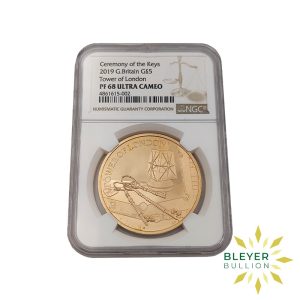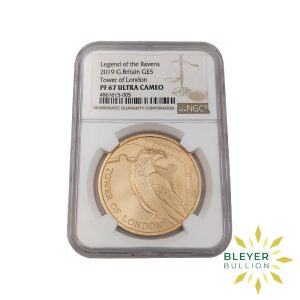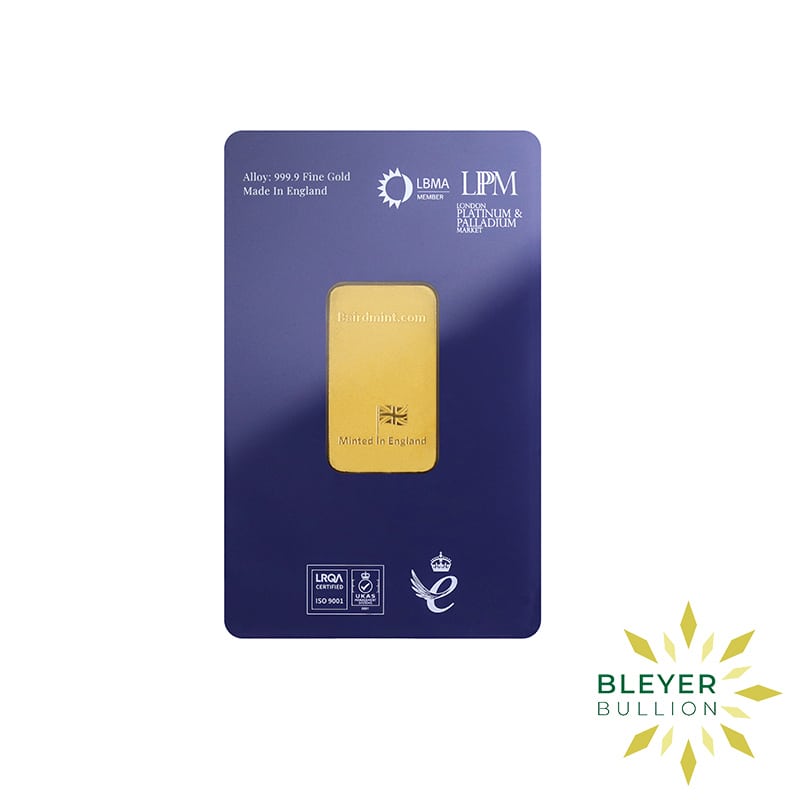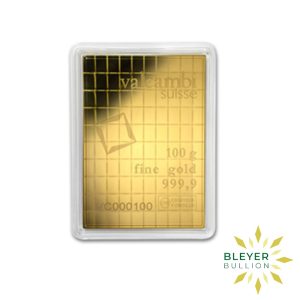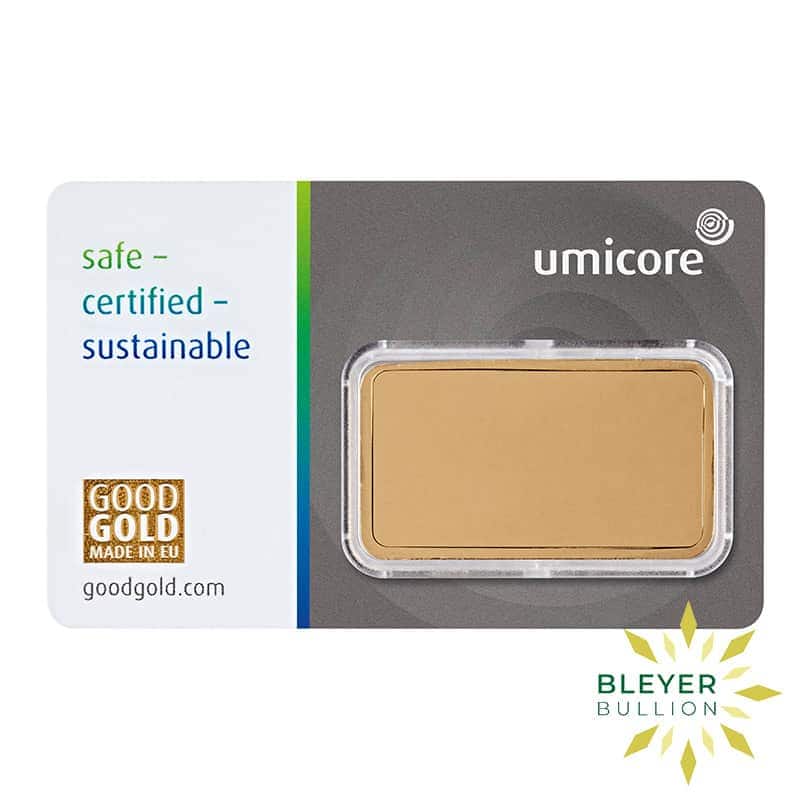At Bleyer, our goal is to make investing in gold as easy and accessible as possible. Before we get to the stage where you are buying physical gold, we want to make sure that investing in gold is the best investment decision for you.
This guide is designed to provide you with all the necessary information you will need to make that decision. We will cover what investing in gold actually means, what can affect the price of gold, the different options for you when you buy gold and the pros and cons of buying gold.
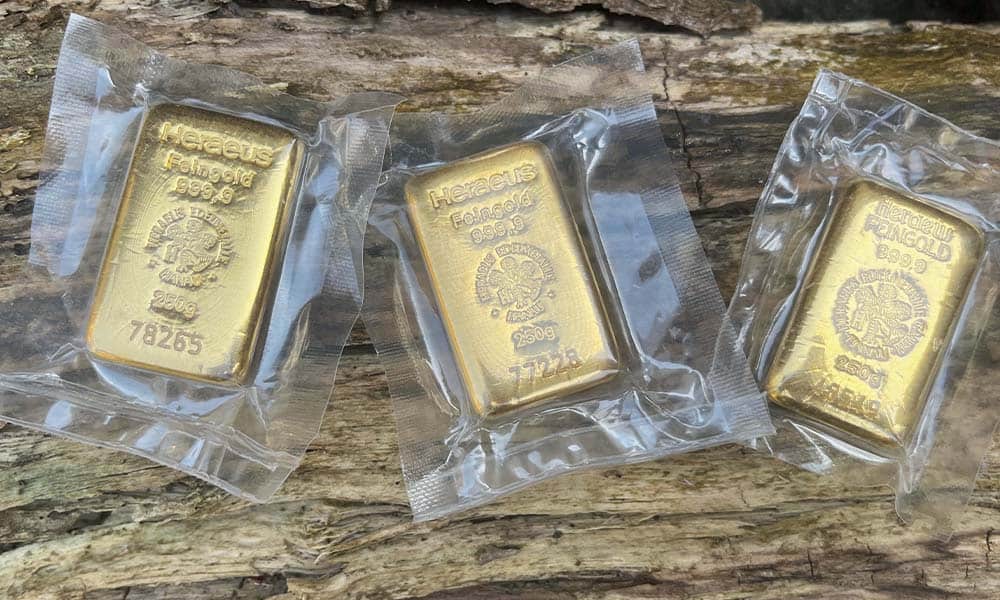
What is Gold Bullion?
Gold bullion is the term used for gold that is primarily bought as an investment, rather than for a more functional purpose, such as jewellery. Bullion is the term used for any physical precious metals that are bought and qualify by definition as investments.
Gold is the precious metal with the most prestigious reputation. Coins of gold were first used thousands of years ago and to this day physical gold commands both awe and respect.
Gold bullion can take the form of gold coins or gold bars, and within that each will have a different purity rating (carat) – the purest type of gold, and therefore most valuable per gram of metal, is 24 carat.
For a long time, investing in gold has had the reputation of only being for people with considerable wealth or an extensive investment portfolio, but that is no longer the case. Anybody can start investing in gold bullion, without having to have thousands of pounds at their disposal. If you are considering it, you can speak to us today to find out how to buy gold as an investment.
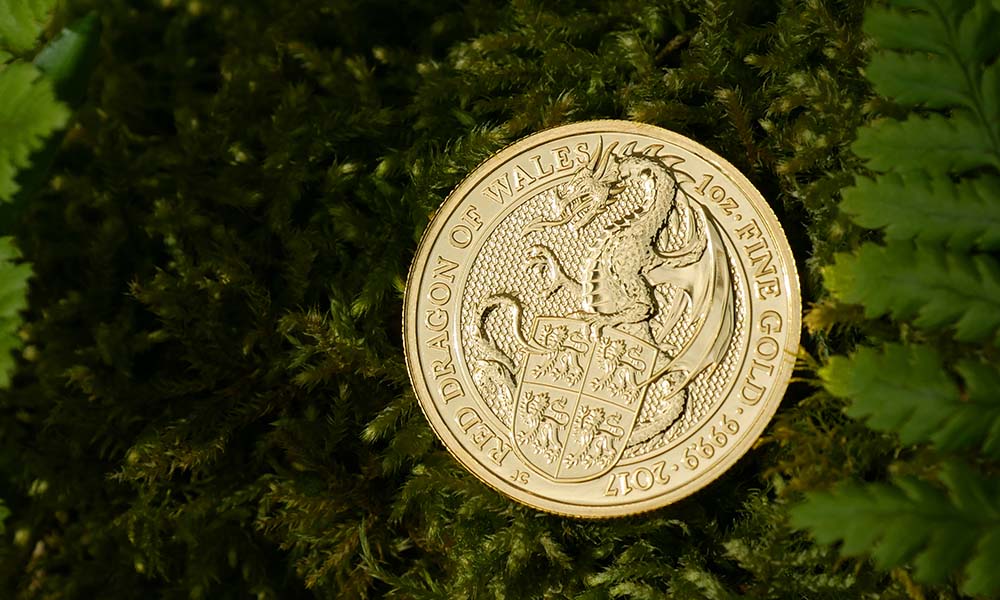
What Are My Options if I Want To Buy Physical Gold?
While there are many different options when it comes to buying gold bullion, it usually falls into two different categories:
1. Gold coins
Gold coins have always been very collectable, but they are not just for hobbyists – they represent a good investment opportunity. Coins, not to be confused with rounds, are designed or commissioned by government approved mints, such as the Royal Mint in the UK, and they are often stamped with a face value in legal tender.
As with all kinds of gold bullion, coins have a market price which can vary. They also come in different purity levels, with an individual carat rating.
Investment coins minted after 1800 must be of no less than 90% purity and will be legal tender in their country of origin to qualify for tax purposes.
Gold coins are available in a range of sizes the weight of the modern sovereign was defined according to the Coin Act of 1816 and has remained consistent from the first mintage in 1817 to the present day.
Therefore, the precise weight of a freshly minted British gold sovereign is 7.98805g, minted in 22ct gold. Its gold content is 7.322381g, 113.0016 grains or 0.235420 troy ounces.
We see other traditional coins that follow this protocol but more commonly international coins are denominated in troy ounces or fractions thereof 10th; ¼ and ½.
2. Gold bars
By definition, gold investment bars are of no less than 99.5% purity but more commonly 99.9% or higher is standard.
While gold coins are incredibly collectable, there is a certain amount of prestige that comes with owning a gold bar, and there is nothing quite like the feeling of holding physical gold. Bars for the retail market are readily available in a variety of sizes, from a range of mints, denominated in grams or troy ounces.
Retail sizes are from 1g to 1 Kilo whereas Market Bars (commonly held by LBMA) are around 400 troy ounces (12.4414 kilograms)
Coins vs Bars
Gold legal tender coins such as Sovereigns and Britannias are Capital Gains Tax exempt. Coins may also have numismatic value for those interested in collecting different years, with varying designs, rarity and other qualities.
Read 'Capital Gains Tax Guide: What Bullion is CGT-Free?'.
What Can Affect The Gold Price?
As with any investment, the price of gold can vary – just like the stock markets. In order to decide whether investing in gold is the best use of your money, it is important to know what can affect the gold market. As with almost everything, it largely comes down to supply and demand. It would be reasonable to expect that if there is a sudden rise in the demand for gold jewellery around the world, the gold price will rise accordingly.
Central banks, major investors and large financial institutions all over the world will hold reserves of both gold and paper currency as a tool to maintain the stability of their financial systems or portfolios. In order to maintain that stability, they may seek to buy more gold, which causes gold prices to rise. These entities also trade highly leveraged gold certificates which enable them to influence prices even more. As we have noticed over the years it is not only obvious demand and supply of physical gold that drives prices.
The biggest driver for the price of gold to increase tends to be global economic uncertainty. When investors are unsure of the stability of other investment platforms, such as the stock market or housing prices, they turn to gold to protect their wealth. This drives the price of gold up further.
To illustrate this further, the highest rise in the price of gold was in the aftermath of the 2008 global economic collapse.
In times of major economic uncertainty, gold offers people stability.
We have seen that even during times of widespread economic confidence when investors are looking for a huge return from more speculative investments, gold prices still tend to be quite robust. It is a physical commodity which has worldwide value, which is completely different to stocks or paper money.
In the 1930s the US dollar began the process of decoupling from gold – since then it has lost 99% of its value against gold.
Read 'Understanding The Spot Price For Precious Metals' here.
The Pros and Cons of Investing in Gold
With this in mind, let’s take a quick look at some of the pros and cons of investing in gold, to help you make the best possible investment decisions for you and your family.
Pros of investing in gold
- Tax efficient: There is no VAT on ‘investment gold’ and legal tender coins in your own country are exempt from CGT as well.
- Stability: As we alluded to above, buying physical gold is one of the most stable investments that you can make. Gold will always be valuable – in times of economic or political uncertainty and against rising inflation. Even in a complete global banking collapse, gold would hold value.
- Control: When you invest in gold you are buying something physical – not just numbers on a spreadsheet. You don’t have to trust a fund manager to look after it for you, you can physically store it in your own home. When it comes to buying and selling gold, you are in complete control.
- Diversification: Gold and other precious metals are investments like no other. They seem to work independently from most financial institutions, and as such are so important when it comes to a balanced portfolio. Many investors don’t realise the importance of a diverse portfolio, but by combining physical bullion with other assets you can protect yourself from market volatility, fluctuating interest rates and other major issues in the global economy.
- Low premiums: If you pick the right product the premiums can be a lot lower than for other metals, largely because there is no VAT on gold. The market is also very liquid, meaning that at any one time there are always large numbers of buyers and sellers. This keeps the spread (difference in buy and sell price) relatively low.
- Easy to store: Gold bars and coins are a compact way of storing a large amount of wealth that is easy to hide away or store in a safe or deposit box.
Cons of investing in gold
- Storage costs: Depending on the amount of gold that you buy and the facilities at your disposal, you may decide that you need to store your gold with a specialist vault storage supplier there will be a cost to this.
- Less likely to have a big win: Due to the stability of gold prices, you are less likely to get that ‘big win’ which can (very) occasionally happen with investments on the stock market or other more speculative investments. Gold should be considered as a store of wealth.
- No interest or dividends: No regular pay-outs, so to cash in you will need to sell some of your gold.
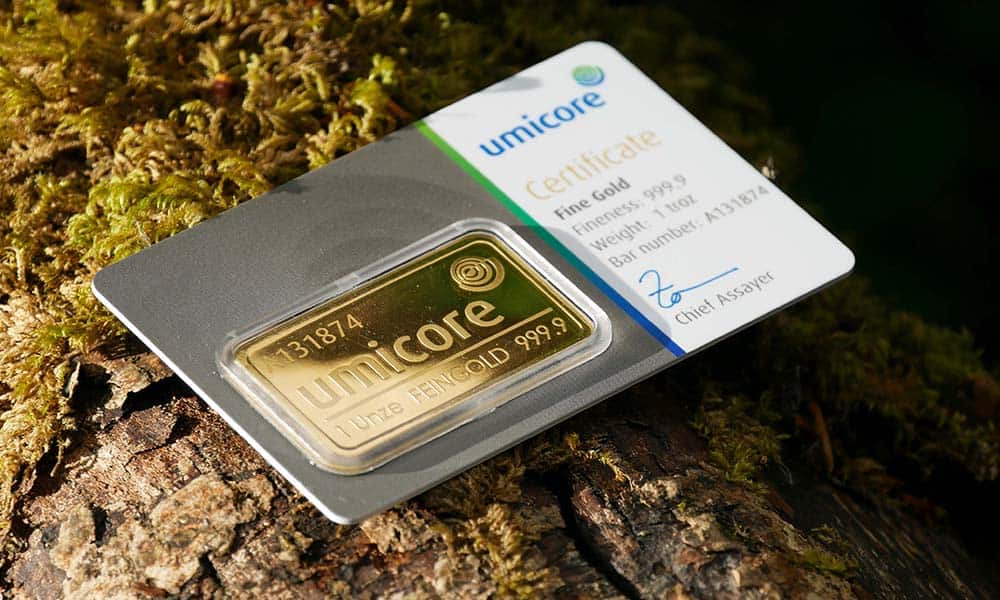
Verdict
It is not our job to tell you that you should invest in gold or anything else for that matter. Every investment carries a degree of risk, however through diversification you can reduce the overall risk in your portfolio. You will need to do some of your own, independent research and have a think about what you want to get out of your investment before you can decide. It is your money and your decision.
What we can do is make it as easy as possible if you decide that you want to invest in gold, and walk you through the process – offering our expertise and listening to you. You will always have control over your own investments when you work with us.
If you have any questions at all about investing in gold, now is the time to get in touch with us. We will offer you our insight and answer any questions you have so that you can make the right decisions for you and your money.


